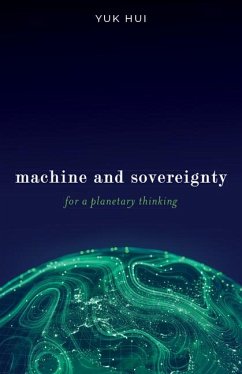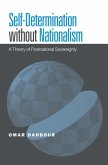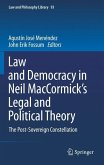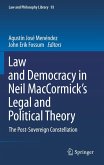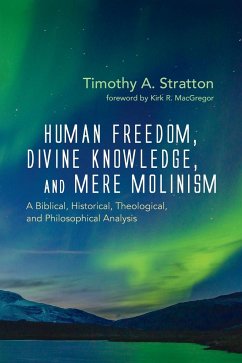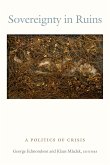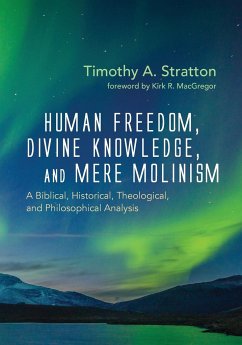- Gebundenes Buch
- Merkliste
- Auf die Merkliste
- Bewerten Bewerten
- Teilen
- Produkt teilen
- Produkterinnerung
- Produkterinnerung
"Machine and Sovereignty offers a future-oriented mode of political thought that encompasses the unprecedented global challenges we are confronting: the rise of artificial intelligence, the ecological crisis, and intensifying geopolitical conflicts. Arguing that a new approach to planetary thinking is urgently needed, Yuk Hui presents new epistemological and technological frameworks for understanding and rising to the crises of our present and our future"--
Andere Kunden interessierten sich auch für
![Self-Determination Without Nationalism: A Theory of Postnational Sovereignty Self-Determination Without Nationalism: A Theory of Postnational Sovereignty]() Omar DahbourSelf-Determination Without Nationalism: A Theory of Postnational Sovereignty91,99 €
Omar DahbourSelf-Determination Without Nationalism: A Theory of Postnational Sovereignty91,99 €![Law and Democracy in Neil MacCormick's Legal and Political Theory Law and Democracy in Neil MacCormick's Legal and Political Theory]() Law and Democracy in Neil MacCormick's Legal and Political Theory116,99 €
Law and Democracy in Neil MacCormick's Legal and Political Theory116,99 €![Law and Democracy in Neil Maccormick's Legal and Political Theory Law and Democracy in Neil Maccormick's Legal and Political Theory]() Law and Democracy in Neil Maccormick's Legal and Political Theory116,99 €
Law and Democracy in Neil Maccormick's Legal and Political Theory116,99 €![Human Freedom, Divine Knowledge, and Mere Molinism Human Freedom, Divine Knowledge, and Mere Molinism]() Timothy A. StrattonHuman Freedom, Divine Knowledge, and Mere Molinism47,99 €
Timothy A. StrattonHuman Freedom, Divine Knowledge, and Mere Molinism47,99 €![Sovereignty in Ruins Sovereignty in Ruins]() Sovereignty in Ruins190,99 €
Sovereignty in Ruins190,99 €![Quo Vadis, Sovereignty? Quo Vadis, Sovereignty?]() Quo Vadis, Sovereignty?97,99 €
Quo Vadis, Sovereignty?97,99 €![Human Freedom, Divine Knowledge, and Mere Molinism Human Freedom, Divine Knowledge, and Mere Molinism]() Timothy A. StrattonHuman Freedom, Divine Knowledge, and Mere Molinism34,99 €
Timothy A. StrattonHuman Freedom, Divine Knowledge, and Mere Molinism34,99 €-
-
-
"Machine and Sovereignty offers a future-oriented mode of political thought that encompasses the unprecedented global challenges we are confronting: the rise of artificial intelligence, the ecological crisis, and intensifying geopolitical conflicts. Arguing that a new approach to planetary thinking is urgently needed, Yuk Hui presents new epistemological and technological frameworks for understanding and rising to the crises of our present and our future"--
Hinweis: Dieser Artikel kann nur an eine deutsche Lieferadresse ausgeliefert werden.
Hinweis: Dieser Artikel kann nur an eine deutsche Lieferadresse ausgeliefert werden.
Produktdetails
- Produktdetails
- Verlag: University of Minnesota Press
- Seitenzahl: 368
- Erscheinungstermin: 14. Januar 2025
- Englisch
- Abmessung: 216mm x 140mm x 18mm
- Gewicht: 510g
- ISBN-13: 9781517917401
- ISBN-10: 1517917409
- Artikelnr.: 71235492
- Herstellerkennzeichnung
- Libri GmbH
- Europaallee 1
- 36244 Bad Hersfeld
- gpsr@libri.de
- Verlag: University of Minnesota Press
- Seitenzahl: 368
- Erscheinungstermin: 14. Januar 2025
- Englisch
- Abmessung: 216mm x 140mm x 18mm
- Gewicht: 510g
- ISBN-13: 9781517917401
- ISBN-10: 1517917409
- Artikelnr.: 71235492
- Herstellerkennzeichnung
- Libri GmbH
- Europaallee 1
- 36244 Bad Hersfeld
- gpsr@libri.de
Yuk Hui is professor of philosophy at Erasmus University Rotterdam and professor at City University of Hong Kong. He is author of Art and Cosmotechnics, Recursivity and Contingency, The Question Concerning Technology in China: An Essay in Cosmotechnics, and On the Existence of Digital Objects (Minnesota, 2016).
Contents
Preface
Introduction: For a Planetary Thinking
§1. On the Planetary Condition
§2. Planetary Thinking as Political Epistemologies
§3. Search for a Planetary Politics beyond the Nation-State
§4. Toward a Tractatus Politico-Technologicus of the Planetary
1. World Spirit as Planetary Thinking
§5. Individuation of the Spirit as Historical Process
§6. World Spirit as Planetary Thinking and the Place of Reason in History
§7. Freedom as the Drive of the Transitions of Political Forms
§8. Recursivity of Reason and Freedom in the Modern State
2. The Organism of the State and Its Limit
§9. Spirit and the Organic Becoming of the Externalized
§10. Organism of the State versus Organism of the Animal
§11. The Impasse from the State to Planetary Freedom
3. From Noetic Reflection to Planetary Reflection
§12. Noetic Reflection: Consciousness and Life
§13. Bioeconomical Reflection: Georgescu-Roegen Reads Hegel
§14. Cybernetic Reflection: Toward the Consciousness of Machines
§15. Noospheric Reflection: In Search of a Planetary Freedom?
4. Mechanism, Organism, or Decisionism
§16. From Political Theology to Political Epistemology
§17. Machine and Organism in The Leviathan in the State Theory of Thomas
Hobbes
§17. Political Epistemology in Hobbes’s Leviathan
§19. Catholicism and the Logic of Complexio Oppositorum
§20. The Death of Hegel and the Triumph of Political Vitalism
5. Nomos of the Digital Earth
§21. First Deconstruction on the Contingency of Sovereignty
§22. Second Deconstruction on the Contingency of Friend and Enemy
§23. Sovereignty and the Elementary Philosophy of Space
§24.Großräume as Post-Static Political Form and the Problem of Pluralism
§25. Giving Colonialism, New Großräume, and Digital Sovereignty
6. An Organology of Wars
§26. The Disproportion of Organs and the Hubris of Wars
§27. From a Cybernetics of Freedom to an Organology of Differences
§28. The Conflict of Tendencies and the Recurrence of Mysticism
§29. The Dynamics of the Technical Tendency and Technical Fact
§30. On the Organological Relation between Technology and Democracy
§31. Biodiversity, Noodiversity, and Technodiversity
7. Toward an Epistemological Diplomacy
§32. Acceleration, Automation, and the Prosthetic Future
§33. Universality Seen from the Perspective of Technodiversity
§34. Sovereignty Seen from the Perspective of Technodiversity
§35. Technodiversity Analyzed via an Anatomy of Technical Objects
§36. Technodiversity as Epistemological Diplomacy
Notes
Bibliography
Index
Preface
Introduction: For a Planetary Thinking
§1. On the Planetary Condition
§2. Planetary Thinking as Political Epistemologies
§3. Search for a Planetary Politics beyond the Nation-State
§4. Toward a Tractatus Politico-Technologicus of the Planetary
1. World Spirit as Planetary Thinking
§5. Individuation of the Spirit as Historical Process
§6. World Spirit as Planetary Thinking and the Place of Reason in History
§7. Freedom as the Drive of the Transitions of Political Forms
§8. Recursivity of Reason and Freedom in the Modern State
2. The Organism of the State and Its Limit
§9. Spirit and the Organic Becoming of the Externalized
§10. Organism of the State versus Organism of the Animal
§11. The Impasse from the State to Planetary Freedom
3. From Noetic Reflection to Planetary Reflection
§12. Noetic Reflection: Consciousness and Life
§13. Bioeconomical Reflection: Georgescu-Roegen Reads Hegel
§14. Cybernetic Reflection: Toward the Consciousness of Machines
§15. Noospheric Reflection: In Search of a Planetary Freedom?
4. Mechanism, Organism, or Decisionism
§16. From Political Theology to Political Epistemology
§17. Machine and Organism in The Leviathan in the State Theory of Thomas
Hobbes
§17. Political Epistemology in Hobbes’s Leviathan
§19. Catholicism and the Logic of Complexio Oppositorum
§20. The Death of Hegel and the Triumph of Political Vitalism
5. Nomos of the Digital Earth
§21. First Deconstruction on the Contingency of Sovereignty
§22. Second Deconstruction on the Contingency of Friend and Enemy
§23. Sovereignty and the Elementary Philosophy of Space
§24.Großräume as Post-Static Political Form and the Problem of Pluralism
§25. Giving Colonialism, New Großräume, and Digital Sovereignty
6. An Organology of Wars
§26. The Disproportion of Organs and the Hubris of Wars
§27. From a Cybernetics of Freedom to an Organology of Differences
§28. The Conflict of Tendencies and the Recurrence of Mysticism
§29. The Dynamics of the Technical Tendency and Technical Fact
§30. On the Organological Relation between Technology and Democracy
§31. Biodiversity, Noodiversity, and Technodiversity
7. Toward an Epistemological Diplomacy
§32. Acceleration, Automation, and the Prosthetic Future
§33. Universality Seen from the Perspective of Technodiversity
§34. Sovereignty Seen from the Perspective of Technodiversity
§35. Technodiversity Analyzed via an Anatomy of Technical Objects
§36. Technodiversity as Epistemological Diplomacy
Notes
Bibliography
Index
Contents
Preface
Introduction: For a Planetary Thinking
§1. On the Planetary Condition
§2. Planetary Thinking as Political Epistemologies
§3. Search for a Planetary Politics beyond the Nation-State
§4. Toward a Tractatus Politico-Technologicus of the Planetary
1. World Spirit as Planetary Thinking
§5. Individuation of the Spirit as Historical Process
§6. World Spirit as Planetary Thinking and the Place of Reason in History
§7. Freedom as the Drive of the Transitions of Political Forms
§8. Recursivity of Reason and Freedom in the Modern State
2. The Organism of the State and Its Limit
§9. Spirit and the Organic Becoming of the Externalized
§10. Organism of the State versus Organism of the Animal
§11. The Impasse from the State to Planetary Freedom
3. From Noetic Reflection to Planetary Reflection
§12. Noetic Reflection: Consciousness and Life
§13. Bioeconomical Reflection: Georgescu-Roegen Reads Hegel
§14. Cybernetic Reflection: Toward the Consciousness of Machines
§15. Noospheric Reflection: In Search of a Planetary Freedom?
4. Mechanism, Organism, or Decisionism
§16. From Political Theology to Political Epistemology
§17. Machine and Organism in The Leviathan in the State Theory of Thomas
Hobbes
§17. Political Epistemology in Hobbes’s Leviathan
§19. Catholicism and the Logic of Complexio Oppositorum
§20. The Death of Hegel and the Triumph of Political Vitalism
5. Nomos of the Digital Earth
§21. First Deconstruction on the Contingency of Sovereignty
§22. Second Deconstruction on the Contingency of Friend and Enemy
§23. Sovereignty and the Elementary Philosophy of Space
§24.Großräume as Post-Static Political Form and the Problem of Pluralism
§25. Giving Colonialism, New Großräume, and Digital Sovereignty
6. An Organology of Wars
§26. The Disproportion of Organs and the Hubris of Wars
§27. From a Cybernetics of Freedom to an Organology of Differences
§28. The Conflict of Tendencies and the Recurrence of Mysticism
§29. The Dynamics of the Technical Tendency and Technical Fact
§30. On the Organological Relation between Technology and Democracy
§31. Biodiversity, Noodiversity, and Technodiversity
7. Toward an Epistemological Diplomacy
§32. Acceleration, Automation, and the Prosthetic Future
§33. Universality Seen from the Perspective of Technodiversity
§34. Sovereignty Seen from the Perspective of Technodiversity
§35. Technodiversity Analyzed via an Anatomy of Technical Objects
§36. Technodiversity as Epistemological Diplomacy
Notes
Bibliography
Index
Preface
Introduction: For a Planetary Thinking
§1. On the Planetary Condition
§2. Planetary Thinking as Political Epistemologies
§3. Search for a Planetary Politics beyond the Nation-State
§4. Toward a Tractatus Politico-Technologicus of the Planetary
1. World Spirit as Planetary Thinking
§5. Individuation of the Spirit as Historical Process
§6. World Spirit as Planetary Thinking and the Place of Reason in History
§7. Freedom as the Drive of the Transitions of Political Forms
§8. Recursivity of Reason and Freedom in the Modern State
2. The Organism of the State and Its Limit
§9. Spirit and the Organic Becoming of the Externalized
§10. Organism of the State versus Organism of the Animal
§11. The Impasse from the State to Planetary Freedom
3. From Noetic Reflection to Planetary Reflection
§12. Noetic Reflection: Consciousness and Life
§13. Bioeconomical Reflection: Georgescu-Roegen Reads Hegel
§14. Cybernetic Reflection: Toward the Consciousness of Machines
§15. Noospheric Reflection: In Search of a Planetary Freedom?
4. Mechanism, Organism, or Decisionism
§16. From Political Theology to Political Epistemology
§17. Machine and Organism in The Leviathan in the State Theory of Thomas
Hobbes
§17. Political Epistemology in Hobbes’s Leviathan
§19. Catholicism and the Logic of Complexio Oppositorum
§20. The Death of Hegel and the Triumph of Political Vitalism
5. Nomos of the Digital Earth
§21. First Deconstruction on the Contingency of Sovereignty
§22. Second Deconstruction on the Contingency of Friend and Enemy
§23. Sovereignty and the Elementary Philosophy of Space
§24.Großräume as Post-Static Political Form and the Problem of Pluralism
§25. Giving Colonialism, New Großräume, and Digital Sovereignty
6. An Organology of Wars
§26. The Disproportion of Organs and the Hubris of Wars
§27. From a Cybernetics of Freedom to an Organology of Differences
§28. The Conflict of Tendencies and the Recurrence of Mysticism
§29. The Dynamics of the Technical Tendency and Technical Fact
§30. On the Organological Relation between Technology and Democracy
§31. Biodiversity, Noodiversity, and Technodiversity
7. Toward an Epistemological Diplomacy
§32. Acceleration, Automation, and the Prosthetic Future
§33. Universality Seen from the Perspective of Technodiversity
§34. Sovereignty Seen from the Perspective of Technodiversity
§35. Technodiversity Analyzed via an Anatomy of Technical Objects
§36. Technodiversity as Epistemological Diplomacy
Notes
Bibliography
Index

